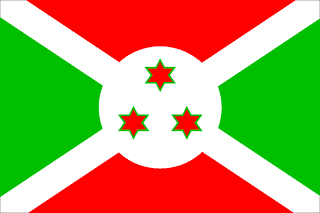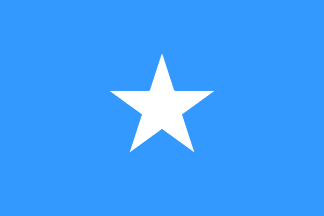USA to back Somaliland Independence?
In the following article, the Washington Post says the the US is losing patience with the TFG in Mogadishu, and may turn is dollars and support to the more stable north in Hargeisa. Supporing Somaliland may just be a ploy by the Bush administration to get the TFG to start working harder on reconciliation, or it may be their way to establish another presence in the Horn. CAMP LEMONIER, Djibouti - The escalating conflict in Somalia is generating debate inside the Bush administration over whether the United States should continue to back the shaky transitional government in Mogadishu or shift support to the less volatile region of Somaliland, which declared independence in 1991, U.S. defense and military officials said. Defense Secretary Robert M. Gates discussed regional issues during a visit to Djibouti on Monday, including Somalia and the presence there of about 8,000 Ethiopian troops, the officials said. Ethiopian forces intervened a year ago to install the fledgling government in Mogadishu and they continue to fight Islamic radicals in Somalia. "My biggest concern about Somalia is the potential for al-Qaeda to be active there," Gates said on his first visit to the Horn of Africa as defense secretary. Asked about allegations of human rights abuses by Ethiopian troops in Somalia, Gates said: "We're obviously very interested in helping the African Union and Ugandans to try and exercise some constructive influence on the Ethiopians." U.S. military officials say Somalia is the greatest source of instability in the Horn of Africa, leading them to seek new ways to contain the violence there. One approach, Pentagon officials argue, would be to forge ties with Somaliland, as the U.S. military has with Kenya and other countries bordering Somalia. A breakaway region along Somalia's northwestern coast, Somaliland has about 2 million people and an elected president, and offers greater potential for U.S. military assistance to bolster security, even though it lacks international recognition, they say. "Somaliland is an entity that works," a senior defense official said. "We're caught between a rock and a hard place because they're not a recognized state," the official said. The Pentagon's view is that "Somaliland should be independent," another defense official said. "We should build up the parts that are functional and box in" Somalia's unstable regions, particularly around Mogadishu. In contrast, "the State Department wants to fix the broken part first -- that's been a failed policy," the official said. The official U.S. government position is that the United States should withhold recognition from Somaliland because the African Union has yet to recognize it. "We do not want to get ahead of the continental organization on an issue of such importance," said Assistant Secretary of State Jendayi E. Frazer in an e-mailed response to questions. The issue is diplomatically sensitive because recognizing Somaliland could set a precedent for other secession movements seeking to change colonial-era borders, opening a Pandora's box in the region. In Djibouti, U.S. military officials say they are eager to engage Somaliland. "We'd love to, we're just waiting for State to give us the okay," said Navy Capt. Bob Wright, head of strategic communication for the Combined Joint Task Force Horn of Africa. The task force is composed of about 1,800 U.S. troops who conduct military training and reconstruction projects such as digging wells and building schools in 11 countries Meanwhile, the United States continues to back Somalia's weak Transitional Federal Government, set up in late 2004 with support from international organizations and the African Union. Source: Washington Post
Whatever the case, such a move would embolden the Hargeisa government to annex more and more land between itself and Puntland. This would cause continued strife in this region, and lead to more death and future generations of revenge. This move would also set a precedent of a first-world country supporting a breakaway republic of a single clan from a larger nation. This may cause other groups around Africa and the world to declare independence. That may be a bad sign for the Ethiopian government.
================================================









